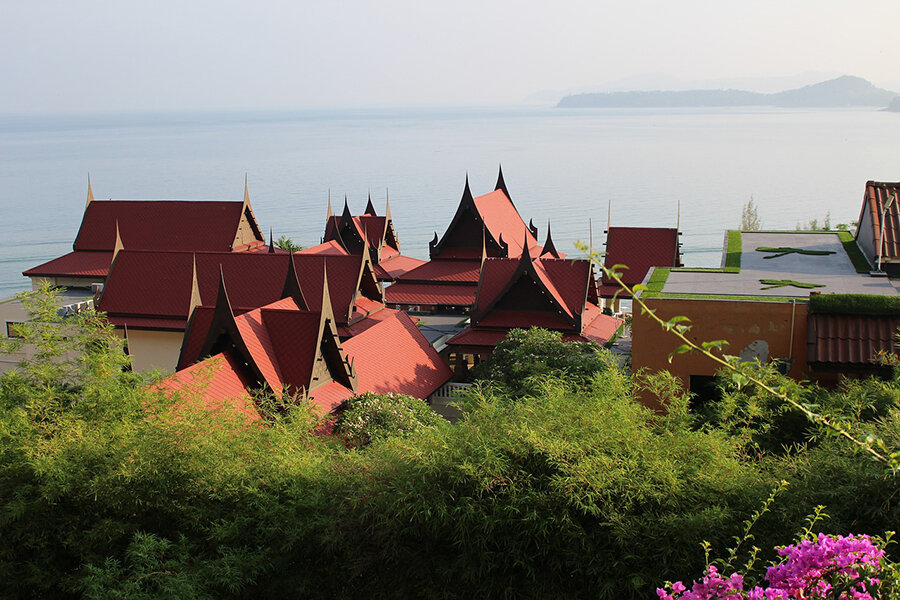read also
Real Estate / Вusiness / Investments / Analytics / News / Thailand / Real Estate Thailand 28.02.2025
Phuket Increases Building Height Limit

The Ministry of Natural Resources and Environment of Thailand (MNRE) has lifted the restriction on constructing buildings higher than 80 meters above sea level in "Zone 6", The Phuket News reports. The new limit has been increased to 140 meters, which is expected to spur new development projects on Phuket and attract investors. However, some experts warn of potential increased risks of natural disasters.
"Zone 6" covers the entire island, except for coastal and densely populated areas such as Phuket Town, as well as protected hills in the Nakkerd mountain range. While the height limit has been raised, authorities have introduced strict requirements for developers. For example:
- Buildings can be no taller than six meters and must have an area of up to 90 square meters.
- Only one-story structures are allowed.
- 70% of the land plot must be designated as a green zone.
- Buildings cannot be constructed close to each other.
- Villas and resorts that are not stand-alone houses or buildings are prohibited.
- Developers must prove land ownership before 2017.
Regulatory Considerations
Nattakrit Fonpet, Deputy Director of MNRE Phuket, emphasized that not all areas will permit construction, even if they meet the new criteria. Landowners in locations prone to flooding or landslides should not expect regulatory leniency.
Additionally, every project must undergo an environmental impact assessment by the Phuket Provincial Public Works and Town & Country Planning Department (ORT Phuket).
This decision, following years of public consultations and discussions with private sector representatives and landowners, could significantly alter Phuket’s real estate market.
"The removal of the height restriction will immediately impact projects where undeveloped land is located above 80 meters," said Nattakrit Fonpet.
Legal and Economic Impacts
Rakkiat Ditfin, a specialist with ORT Phuket, believes that the revised regulations are now fairer. Previously, thousands of landowners were paying taxes on their properties but were not allowed to build. Unlike other provinces, Phuket had strict height limits, with only Koh Samui having a similar restriction (120 meters above sea level).
Maetapong Upatising, President of the Phuket Real Estate Association (P-REA), predicts that land above 80 meters will significantly appreciate in value as it becomes eligible for new development. The announcement of the new regulations has already influenced market prices.
In Patong, land prices have reached 150-200 million THB ($4.3–5.8 million), while areas outside the city range from 6 to 8 million THB ($176,000–$235,000).
Maetapong Upatising also emphasized that luxury hotels and residential complexes will benefit from this change.
"With the ability to expand and connect properties to existing infrastructure, developers can now undertake larger-scale projects," he explained. However, he cautioned developers to consider existing restrictions and location challenges when planning their projects.
Government Oversight and Environmental Risks
Upatising welcomes the policy change but calls for stricter enforcement against non-compliant developers. Local authorities must ensure that construction follows regulations.
Pakorn Warafasakun, Director of ORT Phuket, stressed that safety remains the top priority for granting construction permits.
"Developing Phuket’s hillsides poses risks such as landslides, flooding, and increased runoff, which can have significant environmental impacts," he warned. "These risks must be carefully managed to ensure sustainable development."
He also noted that expanding hillside developments increases risks, recommending that developers implement slope protection measures to prevent disasters. While costly, such measures are necessary for long-term safety.
Concerns Over Deforestation and Overdevelopment
Previously, Phuket leaders urged caution regarding rapid real estate development, warning of deforestation risks in the island’s hills. In 2020, authorities confirmed that more than 13,000 rai (1.3 million sq. meters) of state land, originally intended for underprivileged farmers, was opened for limited construction. These plots included large areas north and south of Patong, as well as outskirts of the resort town.
Experts argue that uncontrolled development could degrade Phuket’s natural beauty, which remains one of the island’s main attractions for tourists and investors.
Government Incentives and Tax Reforms
The new policy is focused on boosting real estate development and attracting investments. To support this, Thailand’s government is considering tax reforms to increase the country's appeal to foreign investors.
Officials are discussing a corporate income tax reduction from 20% to 15% under the Global Minimum Tax (GMT) framework. This would align Thailand with global tax standards and make it more competitive for international businesses.
A radical proposal for personal income tax reform suggests lowering the top rate from 35% to 15%, aiming to attract skilled professionals to work in Thailand. The goal is to bring in global talent and support economic growth.
However, Value Added Tax (VAT) is set to increase. Thailand’s current 7% VAT is significantly lower than the global standard of 15-25%. For comparison:
- Singapore’s VAT is 9%
- Most European countries have VAT around 20%
By implementing these tax changes, Thailand hopes to strengthen its position as a leading investment destination in Southeast Asia.








